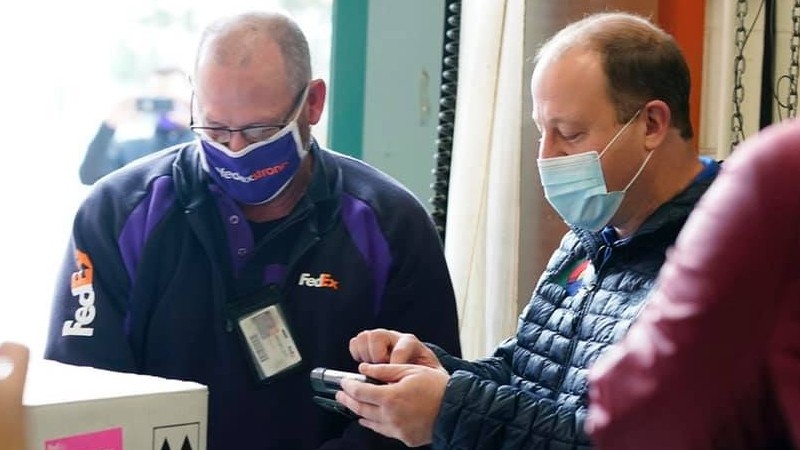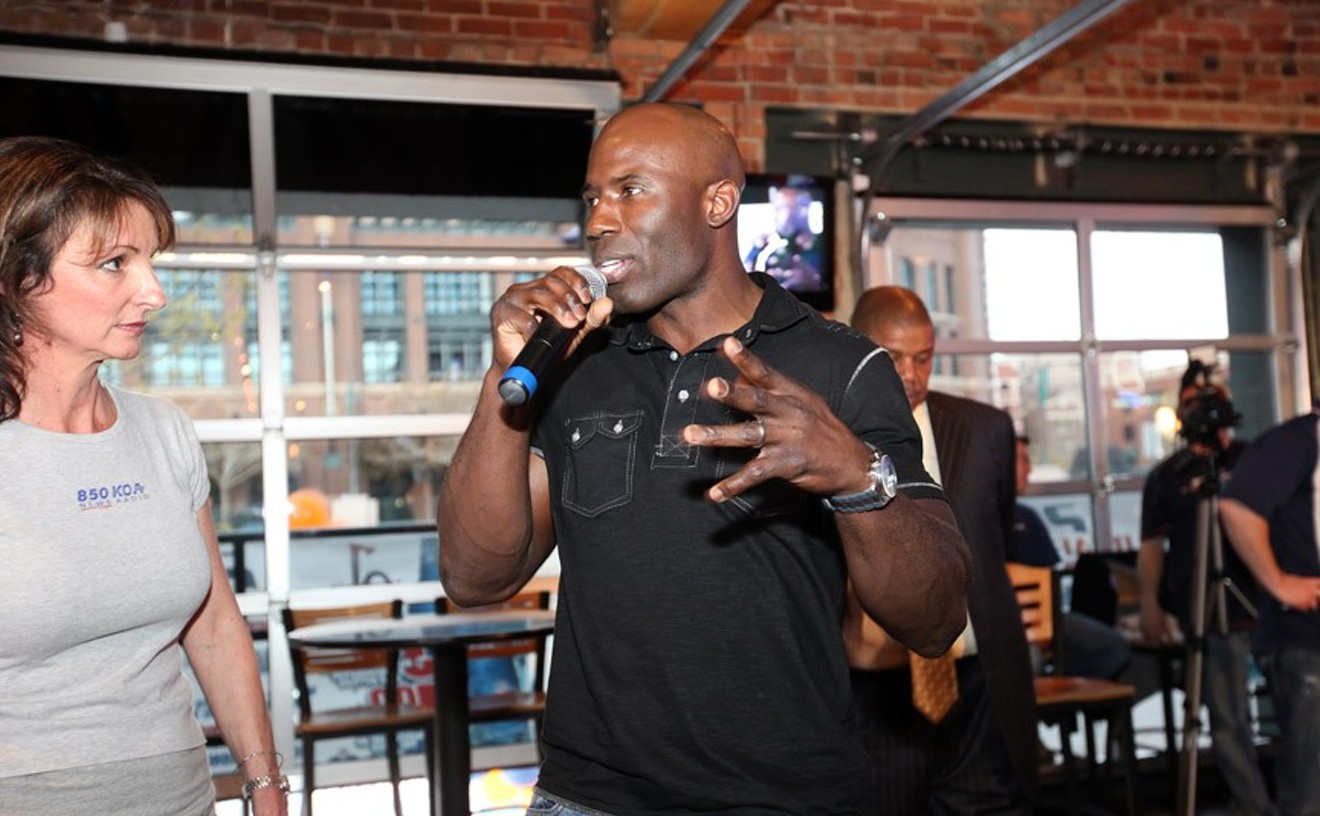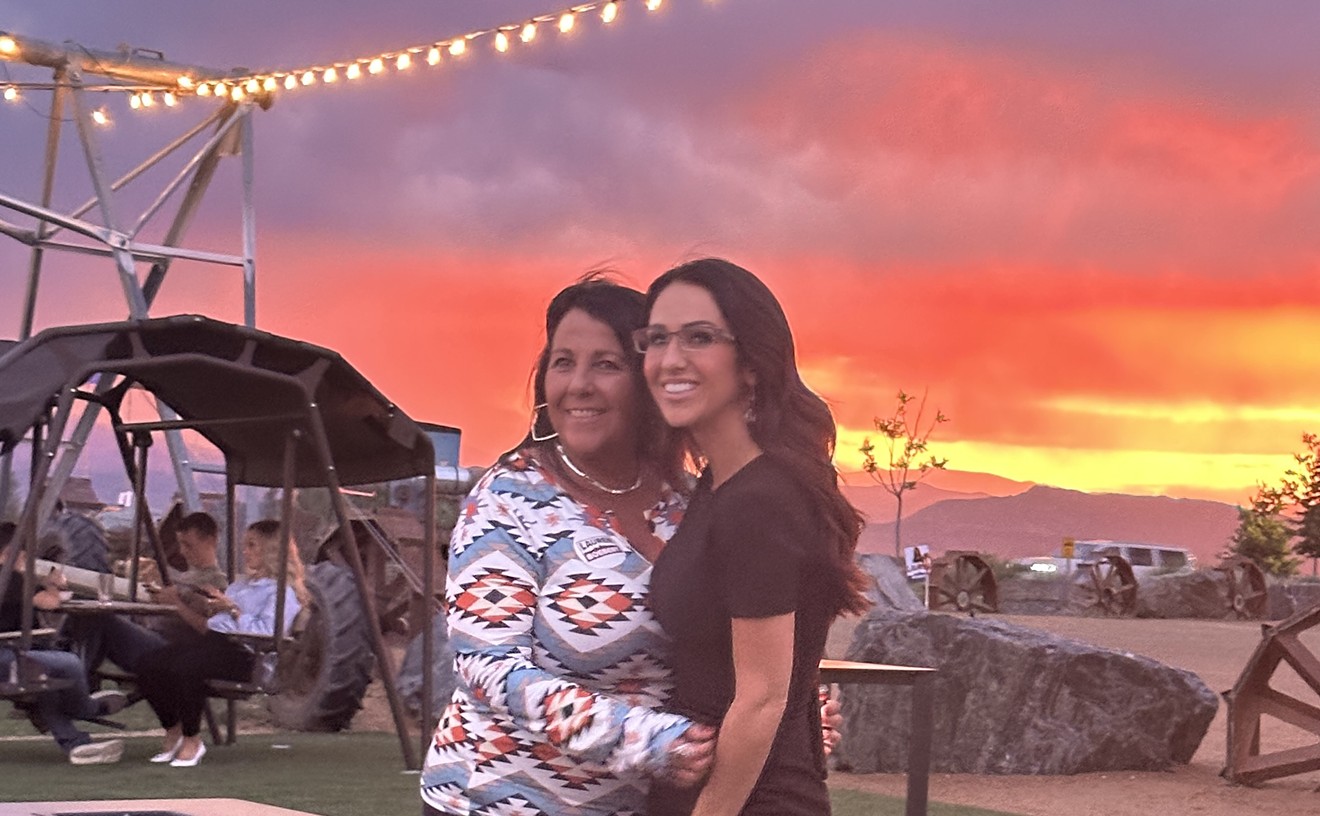The theme of Governor Jared Polis's January 22 press conference about the response to COVID-19 in Colorado was equity — making sure that race, income level or any other demographic distinction isn't an impediment to vaccine access. But Polis admitted the state has multiple "vaccine deserts" that lack hospitals or other sites being commonly used for distribution of the medication, and called statistics showing that more inoculations are happening in areas largely populated by white residents "unacceptable."
After providing a couple of updated stats related to the novel coronavirus (1,798 new cases today and 772 people hospitalized for the disease — both relatively stable figures), Polis pointed out that approximately 6 percent of the state's population has received at least a first shot so far. Moreover, he stressed that the number would be higher if vaccine supply from the federal government was increased. Next week, officials expect to get approximately 83,000 doses of vaccines of Pfizer and Moderna products, but Polis reiterated that three to five times more could be handled without any change to the current system.
Next, Polis again tried to emphasize how easy it is for people seventy and up (the group that will be prioritized up until the end of February) to find out where and how to get vaccinated — but his claims of simplicity were undercut by his recitation of more than a half-dozen phone numbers and website addresses. The most direct resource is covid19.colorado.gov, which boasts a list of providers. Seniors without computer access, or who are uncomfortable with the technology, can also phone various medical systems, though some of the latter still don't have a main hotline set up. One that does is UCHealth, which can be reached at 720-462-2255. According to Polis, UCHealth has provided more than 72,000 doses of the vaccine thus far, with more being dispensed on a daily basis. But it could still be weeks before some seniors are contacted to set up an appointment — again due to vaccine supply issues.
At that point, Polis handed off to a pair of guests: strategic consultant Rick Palacio and Colorado Department of Public Health and Environment Executive Director Jill Hunsaker Ryan. Both talked about the use of pop-up clinics and other methods intended to get vaccines to places with low-income individuals of every description, including those who may be undocumented. They underscored that photo IDs aren't required to get inoculated, and there's no charge for the meds.
Ryan also highlighted education efforts intended to reassure communities of color whose members are worried about vaccine safety. She cited a survey showing that 50 percent of Black and Hispanic women aren't planning to get vaccinated, and screened two public-service announcements (one in English, one in Spanish) that have been designed to offer reassurance to such folks.
During the question-and-answer section of the production, Polis decried vaccination disparities. In his words, "We are taking this on aggressively, including vaccination resistance," in order "to make sure everyone in Colorado, no matter their race, their heritage or where they live, has access to the life-saving vaccine."
In addition, Polis made it clear that he has no objection to federal plans to create large, mass-vaccination sites in many parts of the United States, characterizing the approach as supplementing more neighborhood-based efforts. He also expressed confidence that second doses of the vaccine will be available as needed (some reserve doses were used as first shots this week); confirmed that most teachers should be able to start receiving vaccinations on or after March 1; characterized the impact of people who may be crossing state lines to be vaccinated as slight; and replied to complaints from rural providers about vaccine supply by noting that every hospital system could use more of the medication. In his words, "We want to make sure everybody has equal access to this vaccine, no matter where you live in our great state."
Even if it's a vaccine desert.
[
{
"name": "Air - MediumRectangle - Inline Content - Mobile Display Size",
"component": "12017618",
"insertPoint": "2",
"requiredCountToDisplay": "2",
"watchElement": ".fdn-content-body",
"astAdList": [
{
"adType": "rectangle",
"displayTargets": "mobile"
}
]
},{
"name": "Editor Picks",
"component": "17242653",
"insertPoint": "4",
"requiredCountToDisplay": "1",
"watchElement": ".fdn-content-body",
"astAdList": [
{
"adType": "rectangle",
"displayTargets": "desktop|tablet"
},{
"adType": "rectangle",
"displayTargets": "desktop|tablet|mobile"
}
]
},{
"name": "Inline Links",
"component": "18838239",
"insertPoint": "8th",
"startingPoint": 8,
"requiredCountToDisplay": "7",
"maxInsertions": 25
},{
"name": "Air - MediumRectangle - Combo - Inline Content",
"component": "17261320",
"insertPoint": "8th",
"startingPoint": 8,
"requiredCountToDisplay": "7",
"maxInsertions": 25,
"watchElement": ".fdn-content-body",
"astAdList": [
{
"adType": "rectangle",
"displayTargets": "desktop|tablet"
},{
"adType": "rectangle",
"displayTargets": "desktop|tablet|mobile"
}
]
},{
"name": "Inline Links",
"component": "18838239",
"insertPoint": "8th",
"startingPoint": 12,
"requiredCountToDisplay": "11",
"maxInsertions": 25
},{
"name": "Air - Leaderboard Tower - Combo - Inline Content",
"component": "17261321",
"insertPoint": "8th",
"startingPoint": 12,
"requiredCountToDisplay": "11",
"maxInsertions": 25,
"watchElement": ".fdn-content-body",
"astAdList": [
{
"adType": "leaderboardInlineContent",
"displayTargets": "desktop|tablet"
},{
"adType": "tower",
"displayTargets": "mobile"
}
]
}
]












